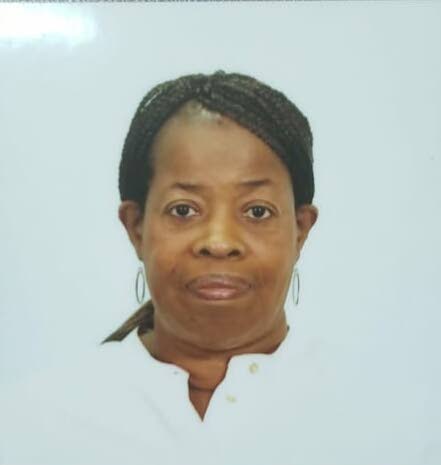Forensic pathology dying?

Charlotteville-born forensic pathologist Dr Eslyn McDonald-Burris found little encouragement among friends and family when she decided she wanted to enter this field in 1994.
“Yuh want to work with the dead? Doh do that. Yuh sure yuh want to do dat? Why yuh doh go into paediatrics?"These were some of the negative comments McDonald-Burris received but she ignored them all.
On Monday at Newsday's office on Shirvan Road, she told Newsday that after 18 years working at the Forensic Science Centre in St James, her passion is as strong as when she made her first incision into a dead body during her time at UWI, Mona, Jamaica.
She said not everyone is cut out for forensic pathology and you have to be "special person" to gravitate to it.
“People fainted and that was the last time you saw them but I was always more interested in anything surgical. I always wanted to see what was inside,” she said.
McDonald-Burris conducts up to 20 autopsies per day and has done close to 5,000.
She lamented the lack of interest in pathology by young people and hopes creative ways are adopted to attract them.
“There is a shortage of us but I won’t say 'dying,' even more so in forensic pathology. Some pathologists do clinic hospital pathology – death by natural causes, there is a shortage in them also. In forensic, it’s more scarce. There is a shortage worldwide, not just us but it may be more acute here.”She said most medical students choose a speciality area and open a private practice. Forensic pathologists have to work for the State full-time.
“It doesn’t allow you to make a whole lot of money, if that’s what they want. It seems that the young folks are interested in the more clinical stuff, where they have an independent practice...And I think most doctors don’t want to go to court, because in forensic the law intertwines.”She said more should be done to make forensics attractive and encourage aspiring pathologists to “go for it, if it is their passion, and don’t enter the field because of money.”
She further encouraged young medical students to “see what the country needs. If you planning to live and work here, see what we need and do accordingly. When I did my scholarship in 1994 is when they (government) said they needed forensic pathologists. I liked it, I was intrigued by it, I got the scholarship and I went.”McDonald-Burris said her love of medicine and forensic pathology started on the outskirts of the small fishing village of Charlotteville, in the library, on Saturday evenings. McDonald-Burris, who was a child at the time, would visit it with her grandmother when she left home to buy fish.
The first child of six, she was given a little table by the librarian, who would also choose books about medicine for her to read. She said her favourites were the adventures of Dr Doolittle, which left her enchanted and intrigued by human anatomy after reading all the series.She attended Charlotteville Methodist Primary School, then Bishops High school. She later studied medicine at UWI, St Augustine for a year and then went on to Mona campus in Jamaica.
In 1986 she married engineer Ellis Burris, a former WASA CEO, ex-chief administrator at the Tobago House of Assembly and retired permanent secretary. She left Tobago in 1990 for St Louis University in the United States to do her master's in public health then returned to Tobago and became county medical officer.After winning a scholarship in 1994 to the University of Glasgow in Scotland to study forensic pathology, she returned in 1998 and started work at the Forensic Science Centre in 2001, under the Ministry of National Security.
She said her grandmother had a significant influence on her life, spirituality and career path. Prayer is an everyday routine for McDonald-Burris in the changing room before she does an autopsy.
“I always ask for me to get the correct diagnosis, to help me to do what is right, because it is important. We are always under a lot of stress that we must learn to manage.
"The hardest thing is writing up the medico-legal report. I have to do it clearly and hope it cannot be misinterpreted, because one comma can change the whole meaning.”


Comments
"Forensic pathology dying?"